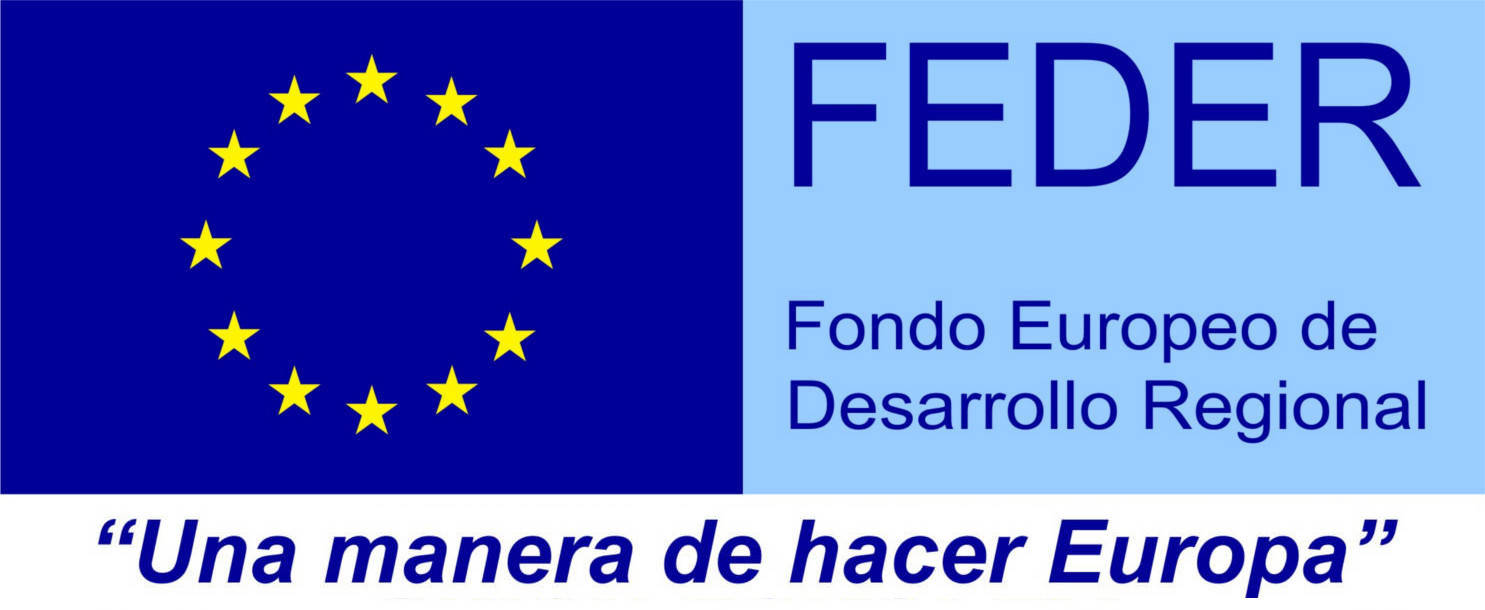PROJECT COMPLETED (2019-2022)
In recent decades, the study of (dis)agreement has emerged as topic of research central to understanding the functioning of conversational exchanges and the way in which the speaker and his interlocutors negotiate meaning and the modulation of attitudes through a wide set of verbal and nonverbal means.
MultiNeg proposes a cognitive and multimodal turn in the study of interactive negation. Between 2019 and 2022, the project is coordinated by the Multimodal Pragmatics Lab of the University of Navarra, with the support of the Spanish Ministry of Science, Innovation and Universities and FEDER/UE funds (grant agreement PGC2018-095703-B-I00).
Objectives and data
The central objectives of MultiNeg are to detect verbal and non-verbal patterns that are used consistently in the expression of disagreement in three languages(English, Spanish and German).
Two types of spontaneous and contextualised speech data are used as a basis:
 On the one hand, a macro-analysis of the main trends observed in various large audiovisual corpora (drawn from a huge multimodal database ) allows for generalisations with quantitative and statistical relevance.
On the one hand, a macro-analysis of the main trends observed in various large audiovisual corpora (drawn from a huge multimodal database ) allows for generalisations with quantitative and statistical relevance.
 And, on the other hand, the trends detected are contrasted and refined through micro-analysis of a corpus of recordings of spontaneous conversations carried out in the Multimodal Pragmatics Lab.
And, on the other hand, the trends detected are contrasted and refined through micro-analysis of a corpus of recordings of spontaneous conversations carried out in the Multimodal Pragmatics Lab.
Team

Main researcher

Inés Olza
iolzamor@unav.es
group Emotional culture and identity
CVN
Publications

Publications generated by the team during the project:
2023
Manero, Elvira, Laura Amigot & Inés Olza (2023), "Phraseology of disagreement in a multimodal television corpus: a multilevel study," Circle of Applied Linguistics in Communication, 95, 163-178.
2023
Manero, Elvira, Laura Amigot & Inés Olza (2023), "Phraseology of disagreement in a multimodal television corpus: a multilevel study", Circle of Applied Linguistics in Communication, 95, 163-178.
2019
Manero Richard, Elvira and Herminia Provencio Garrigós (2019) (coords.), La perspectiva pragmática en el español, monograph of the Revista de research Lingüística, vol. 22.
Linares, Esther & Inés Olza (eds.),The sociopragmatics of interpersonal conflict and mediation, special issue, Pragmatics (in preparation).
2023
Manero, Elvira, Laura Amigot & Inés Olza (2023), "Phraseology of disagreement in a multimodal television corpus: a multilevel study", Circle of Applied Linguistics in Communication, 95, 163-178.
Olza, Inés & Javier Yániz (2023). "Between conflict and cooperation: The role of gestural (mis)alignment in conversation", SI paper proposal for Pragmatics, preliminarily accepted.
2021
Olza, Inés (2021), "Multimodal patterns of conversational (dis)alignment", V. Pérez Béjar and M. Méndez Orense (eds.), Perspectivas integradas para el análisis de la oralidad, Sevilla, publishing house Universidad de Sevilla, 131-155.
2020
Pagán, Cristóbal, Javier Valenzuela, Daniel Alcaraz, Inés Olza & Michael Ramscar (2020), "Quantifying the speech-gesture relation with massive multimodal datasets: informativity in time expressions", PLOS ONE, https://doi.org/10.1371/journal.pone.0233892.
Valenzuela, Javier, Cristóbal Pagán, Inés Olza & Daniel Alcaraz (2020): "Gesturing in the wild: Spontaneous gestures co-occurring with temporal demarcative expressions provide evidence for a flexible mental timeline", Review of Cognitive Linguistics, 18(2), 289-315.
2019
Myre Jörgensen, Annette & Inés Olza (2019), "Phraseology in teenage language in Spanish, English and Norwegian: Notes on a number of fixed expressions that articulate disagreement", Languages in Contrast, https://doi.org/10.1075/lic.17013.jor.
2021
Pérez-Salazar, Carmela (2021), "Cortesía, falsa cortesía y descortesía en los entremeses de Miguel de Cervantes, Anales Cervantinos, LIII, 315-343.
2020
Pérez-Salazar, Carmela (2020), "Lenguaje de carnaval en el teatro breve del Siglo de Oro", Hipogrifo, 8-1, 181-203.
2019
Pérez-Salazar, Carmela (2019), "Linguistic resources for humor in Quevedo's burlesque prose," Romance Notes, Issue monographic, 59-2, 299-311.
Pérez-Salazar, Carmela (2019), "Burlas (y veras) en la fraseología española del Siglo de Oro: el Vocabulario de refranes y frases proverbiales de Gonzalo Correas", language, cultura, speech. programs of study offered to Professor Manuel Casado Velarde. Pamplona: Eunsa, 763-780.
Selection of previous publications by the MultiNeg research team:
2017
Amigot, L.& C. Rico Albert, "Marchando una de variantes fraseológicas aspectuales. Algunas notas contrastivas español-alemán", in C. Mellado Blanco, K. Berty& I. Olza (eds.), speech repetido y fraseología textual. Madrid/Frankfurt: Iberoamericana/Vervuert, 113-131.
2014
Amigot, L. & I. Olza, "Prosody of expressive routine formulae. Notas contrastivas alemán-español e implicaciones en la enseñanza de segundas lenguas", in M. I. González Rey (ed.), Didáctica y traducción de las unidades fraseológicas. Santiago de Compostela: Universidad, 115-130.
Amigot, L., "Was weiß ICH! The prosodic component in German expressive routine formulae. Un análisis a partir de muestras orales", in C. Mellado Blanco (ed.), Kontrastive Phraseologie Deutsch-Spanisch. Sprachkontrasteund Sprachbewusstsein. Tübingen: Stauffenburg Verlag, vol. 1, 127-140.
2013
Amigot, L., "Processes of metaphorization in expressive routine formulae", in M. Fernández Bueno, M. Llamas Ubieto & P. Sánchez Hernández (eds.), Rückblickeundneue Perspektiven. Miradas retrospectivas y nuevas orientaciones. Frankfurt a. M. et al.: Peter Lang, 291-302.
2012
Amigot, L., "Expressive routine formulas as a vehicle for conveying emotions. Expressive correspondences in the German-Spanish contrast", in P. Eberwein, A. Torrent & L. Uría Fernández (eds.), Kontrastive Emotionsforschung Spanisch-Deutsch. Aachen. Shaker, 21-35.
2011
Amigot, L., "Fórmulas rutinarias con forma interrogativa y fuerza ilocutiva expresiva: análisis contrastivo alemán-español y problemas de equivalencia", in A. Pamies Bertrán, J. M. Pazos Bretaña & L. Luque Nadal (eds.), Multi-lingual Phraseography: Translation and Learning Applications. Baltmannsweiler. Schneider Verlag Hohengehren, 205-213.
2010
Amigot, L., "El lugar de las fórmulas rutinarias psico-sociales en los estudios de fraseología contrastiva alemán-español: estado de la cuestión y propuestas metodológicas". Interlingüística, XXI, 378-388.
2013
Olza, I. and E. Manero (eds.), Phraseopragmatics. Berlin: Frank & Timme.
Manero, E., "En boca cerrada no entran moscas. Algunos apuntes sobre el valor discursivo del refrán en textos periodísticos", in I. Olza and E. Manero (eds.): Fraseopragmática. Berlin: Frank & Timme, 127-166.
2011
Manero, E., Linguistic perspectives on the refrain. El refranero metalingüístico del español. Frankfurt am Main: Peter Lang. 616 pages.
2008
Manero, E., "Qué saben los hablantes sobre la cortesía lingüística. Algunos refranes referidos ala cortesía, in speech y sociedad. Nuevas contribuciones al estudio de la language en contexto social. Castellón: Publicacions de la Universitat Jaume I, 375-387.
2007
Manero, E., "El lenguaje valorado por los hablantes: el refranero español como expresión dela lingüística implícita de la comunidad lingüística española", in Interculturalidad y lenguaje. El significado como corolario cultural. Granada: Granada Lingvistica, 49-58.
Manero, E., "La representación de las figuras del emisor y el receptor en el refranero español decontenido metalingüístico", in El componente etnolingüístico de la Paremiología/The ethnolinguistic component of paremiology. Fernelmont: Editions Modulaires Europeennes (E.M.E.), 158-181.
Manero, E., "El refranero español de contenido metalingüístico: refranes sobre tipos de texto y actos de habla, RILCE, 23(2),417-434.
2005
Manero, E., "Un caso especial de fenómeno polifónico de la language: el refrán", in Estudios sobre lo metalingüístico (in Spanish). Frankfurt am Main: Peter Lang, 93-115.
2019
Olza, I.&A. M.Jörgensen, "Phraseology in teenage language in Spanish, English and Norwegian: Notes on a number of fixed expressions that articulate disagreement", Languages in Contrast.
2018
Steen, F., A. Hougaard, J. Joo, I. Olza et al. (2018), "Toward an infrastructure for data-driven multimodal communication research", Linguistics Vanguard, DOI
Turchyn, S., I. Olza, C.Pagán, F.Steen, M.Turerr, J.Valenzuela&S. Ray (2018), "Gesture annotation with a visual search engine for multimodal communication research", IAAI-18, article 72.
2017
Olza, I., "Metalinguistic negation and explicit echo, with reference to English and Spanish", in M. Roitman (ed.), The Pragmatics of Negation, Amsterdam/ Philadelphia, John Benjamins, 45-62.
2013
Olza, I.& E.Manero Richard, "El nesario "giro pragmático" en la Fraseología", in I. Olza & E. Manero Richard (eds.), Phraseopragmatics, Berlin, Frank & Timme, 7-19.
2011
Olza, I., "On the (goal) pragmatic value of some Spanish idioms based on terms for body parts", Journal of Pragmatics, 43/12, 3049-3067.
Olza, I. and M. C. Losada, "Apoyos co(n)textuales en el empleo discursivo de las unidades fraseológicas", Revista Signos, 44 (76), 132-144.
Olza, I., Corporality and language. La fraseología somática metalingüística del español, Frankfurt am Main, Peter Lang.
Olza, I. (2011), "¡Qué fraseología ni qué narices!: fraseologismos somáticos del español y expresión del rechazo metapragmático", in A. Pamies Bertrán, J. de Dios Luque Durán & P. Fernández Martín (eds.), Paremiología y herencia cultural, Granada, Educatori, 181-191.
González, Ramón & I. Olza (2011), "Eco y emoción: funciones pragmadiscursivas de algunos fraselogismos somáticos con narices", in R. González & C. Llamas (eds.), Gramática y speech. Nuevas aportaciones sobre partículas discursivas del español, Pamplona, EUNSA, 105-134.
2017
Pérez-Salazar, C., "Ni por esas ni por esotras; sin ton ni son. Origen, difusión, autoridad lexicográfica", Estudios Filológicos. Universidad Austral de Chile, 59, 129-147.
Pérez-Salazar, C., "Ni por lumbre. model fraseológico en la historia del español", in speech repetido y fraseología textual. Madrid-Frankfurt: Iberoamericana-Vervuert, 2017, 269-298.
2015
Pérez-Salazar, C., "Nada, cosa y nonada en español clásico. Aproximación desde los textos dramáticos del Siglo de Oro", conference proceedings del IX congress Internacional de Historia de la language Española. Madrid-Frankfurt: Iberoamericana-Vervuert,
2014
Pérez-Salazar, C.& I. Olza, From speech media to the linguistics of speech. Berlin: Frank & Timme.
Pérez-Salazar, C., "No(n) nada, no(n)nada. De los textos legales de la Edad average a la literatura del Siglo de Oro", Boletín de Filología, XI-IX, 2014(I), 59-92.
2013
Pérez-Salazar, C., "Sobre las fórmulas nada de eso, por nada (del mundo). Cronología, valores y especialización pragmática", in I. Olza and E. Manero (eds.), Phraseopragmatics. Berlin: Frank & Timme, 231-261.
Pérez-Salazar, C., "Fraseología del maldecir en el Vocabulario de refranes y frases proverbiales de Gonzalo Correas". Revista de filología. University of La Laguna, 2013-1, 141-158.
2009
Pérez-Salazar, C., "Ni hablar, ni pensar, ni soñar. Historical analysis of their transformation into phraseological units", Nueva Revista de Filología Hispánica, LVII-1, 37-64.
2007
Pérez-Salazar, C., "Unidades fraseológicas y diacronía. Sobre las fórmulas de ninguna manera y en absoluto", Estudios Humanísticos. Filología, 29, 253-281.
The generation of quality data and multimodality, challenges of the analysis of agreement and disagreement in human interaction.
→ See news



